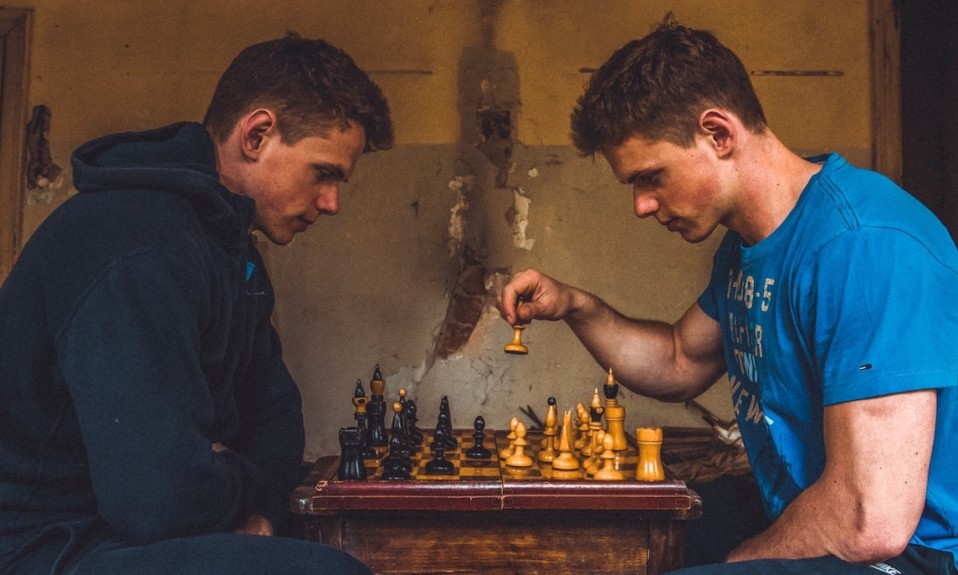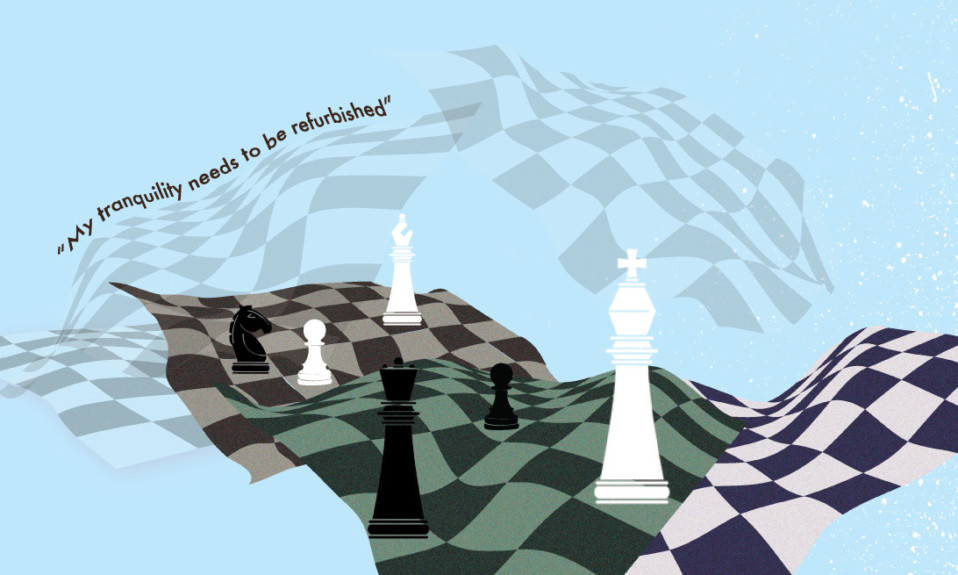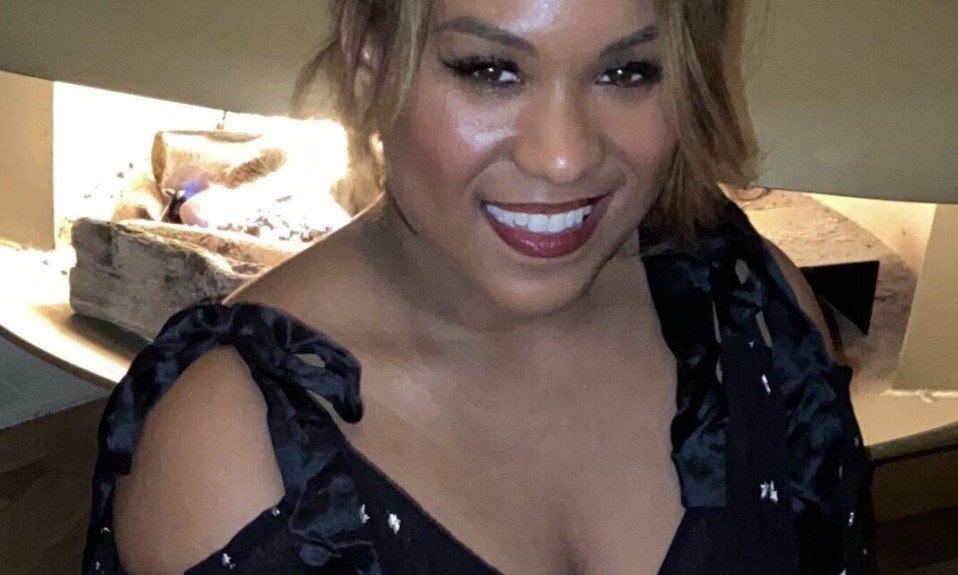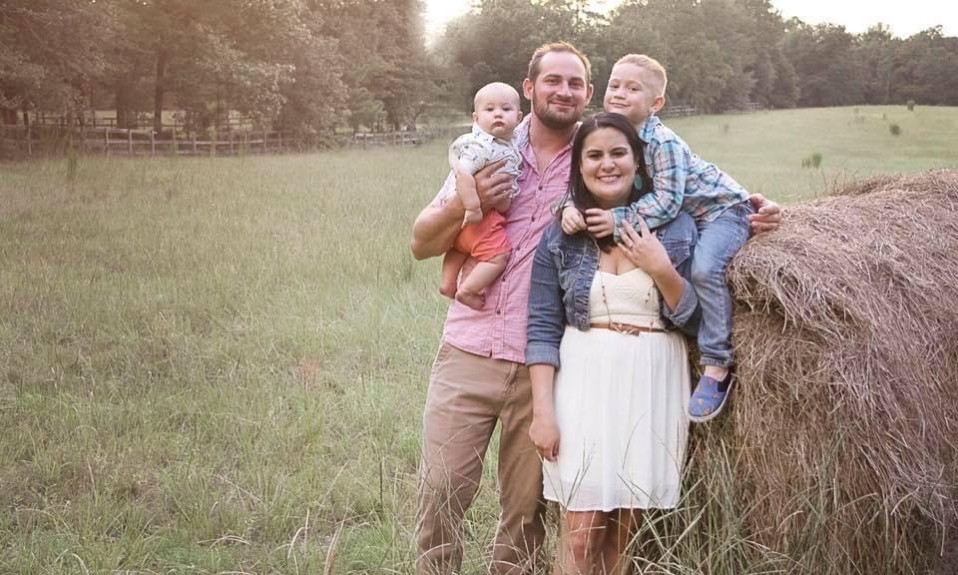A conversation with Hugh Patterson, who discovered how chess can redirect the mind and provide a foundation for recovery
By Darya Daneshmand
Author, musician and chess coach Hugh Patterson talks to TreatmentMagazine.com about his experience with addiction, the role of chess in his recovery, and how he’s helping others discover the game’s therapeutic power.
Q: Can you tell me a bit about your story and how you started playing chess?
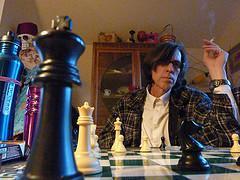
A: I was a professional musician for my entire life, starting at 7, so I played a lot of guitar in my bedroom and then finally got good enough to start playing for audiences. I got involved in the punk rock scene in San Francisco right when it hit, which propelled me upward. I had dabbled with chess since I was 12 but started to get into it as a way to pass the time, because I was constantly touring between the ages of 18 and 24. Other bands played chess too, so we would tour together across the U.S. and just play from one end of the country to the other.
Q: How did you start teaching?
A: Getting into it as a teaching career was an accident. Someone said, “Hey you’re pretty good, do you think you could teach people how to play chess?” and I said sure.
During my music career, I ended up getting really strung out on heroin. I used to use chess a lot when I was detoxing off the drugs because it gave me something to focus on, letting me shut out everything except the chess board.”
—Hugh Patterson
Q: You struggled with substance use yourself—how did chess play into your own addiction and recovery?
A: During my music career, I ended up getting really strung out on heroin. I used to use chess a lot when I was detoxing off the drugs because it gave me something to focus on, letting me shut out everything except the chessboard. And I arrived at the conclusion that, you know, this is a pretty great way to teach people critical problem-solving skills—how to harness logic and reasoning to work out complex problems.
Q: Did that experience affect your game?
A: It did. When I’m playing a particularly long, complicated game against a strong opponent, usually a title player—a chess master or grandmaster—there are times when I just feel like giving up and ending the game. I can recall when I was suffering from the physical detox of opiate withdrawal and remember that, well, you know you felt terrible, a lot worse than you do right now, and you just powered through it.
Q: Do you find that chess principles apply to the recovery process?
A: There’s an art to the game. It’s like a blank canvas when you start and then see what kind of painting you produce. The great thing about chess is that it does mirror our lives to a certain extent.
Especially early in recovery, the thoughts running through your head can be a serious obstacle. Many in the world, myself included, had a couple screws come loose due to the pandemic, and went a bit stir crazy. … With Android and iPhone apps, you’ve got a partner to play chess with at any time.”
—Hugh Patterson
If you break down the games of fantastic chess players, it’s often just a series of very simple and logical solutions to bigger problems. Something that can be a struggle for anyone, but especially for those with addiction issues, is that your mind can overcomplicate things. Recovery is guided by some very simple principles too. You might go to meetings, get a sponsor and work the steps. The idea is that you have this series of steps that allow you to put everything in perspective, and then come out the other end retrained. The addiction part of drug use is typically a symptom of something else. That could be anything from childhood trauma to a psychological disorder or physical illness, so you need to tackle it at its root. It’s a matter of breaking bad habits.
Q: How does isolation play a role in that?
A: Especially early in recovery, the thoughts running through your head can be a serious obstacle. Many in the world, myself included, had a couple screws come loose due to the pandemic, and went a bit stir crazy. Human interaction is so important. With Android and iPhone apps, you’ve got a partner to play chess with at any time, and the game has been a great benefit to at-risk youth that I’ve worked with because it gives them an outlet. And you can play on your own.
Q: Could you tell me a bit about your work with young people in Juvenile Hall?
A: When I was going to Juvenile Hall to teach chess in San Francisco, a majority of those kids were gang members, so their social lives revolved around the gang. When they’re isolated, they start thinking about a lot of the negative things going on in their lives. I’m able to reflect on a bad time in my life along with decades that have been wonderful, whereas a kid that’s having problems is looking at a much shorter lifespan. That can be very difficult.
Q: And I’m sure they’re learning a lot.
A: Whether they know it or not, they’re developing life skills for problem-solving. They’re learning that they can’t just beat up their opponent. They have to experience the emotion but focus on responding with clarity and winning the game with their minds.
There are highly intelligent kids in Juvenile Hall that are reading three, four books a week. I was amazed. I use a Socratic method for teaching and usually throw in about 10 minutes in the class for them to discuss things like global events or geopolitical situations if they bring them up, and I ask them questions like “Could this be anything you can use your chess brain to figure out?”
Q: And how did you start teaching chess to people at treatment facilities?
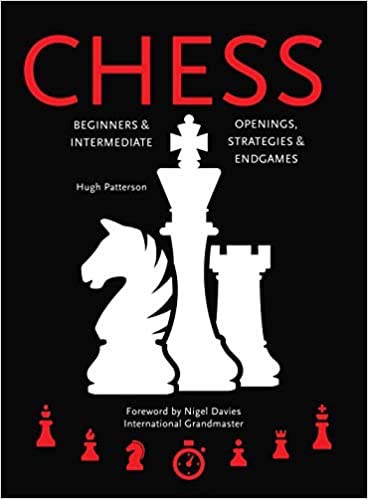
A: I started running into fellow addicts at meetings, and they’d want to get into chess, since they thought it would help them. So I started getting chess boards and pieces for people in Narcotics Anonymous, passing them out and giving free lessons before meetings. Somebody suggested that I try doing it at one of the recovery centers in the area. I started working with hospitals and institutions with Narcotics Anonymous in Marin County, and in meetings up here at recovery centers.
Q: What feedback have you received from students at treatment facilities?
A: I most often get one of three responses: This is getting my mind off my problems; or this is great because I’m getting pretty good at figuring out how to solve problems; or—the biggest one that I get—this is really helping me keep the insanity at bay. I’ve noticed that chess can really help people who struggle with scattered thoughts.
At a treatment center, you’re really raw the first couple of weeks, emotionally speaking. It’s as if somebody took your entire thought process and pulled out every third word. It’s a biochemical reaction to detoxing, but a lot of people that I get feedback from have said that [chess] keeps them from teetering off the brink, helping them focus their thoughts and constructively pass the time. In a detox unit, time seems to slow down. An hour can seem like a day, and 10 minutes can seem like an hour. It’s like a tether to reality.
Q: I learned that chess can be used in therapy to gain insight into how patients think through the way they play. What can you learn about someone by watching them play?
A: It’s a reflection of what they keep inside that you can’t really see otherwise. You can tell whether or not someone is a risk-taker, if they have a big or small ego, if they are aggressive, defensive, etc. The openings you use can convey a lot, too, since they could be passive or aggressive or neutral. I could look at one and say with a fair degree of accuracy, “Okay, that person’s pretty aggressive in life.”
I use the chessboard as an example. I say this is a matter of, you know, you get clean time or sober time, one day at a time. You just have to do it every day, and don’t think about tomorrow.”
—Hugh Patterson
Q: Do you have a favorite opening? Overall, what approach do you support?
A: If I’m playing white, I play an opening called the London System, and if I’m playing black I’m a big fan of the King’s Indian Defense. I would say that they mirror my personality to a certain extent. For instance, King’s Indian is a very defensive opening for black, and I am the type to stand back and wait to see what happens before reacting.
I use the chessboard as an example. I say this is a matter of, you know, you get clean time or sober time, one day at a time. You just have to do it every day and don’t think about tomorrow, just think about today, get through today.
Top photo: Zoren Borojevic


